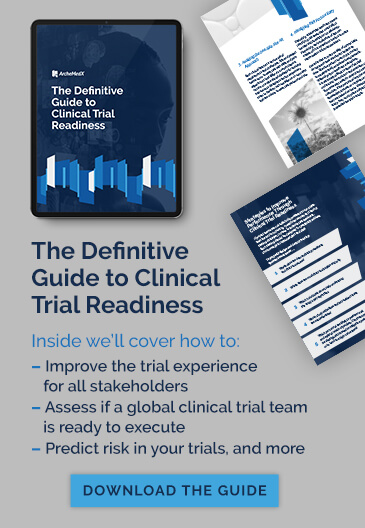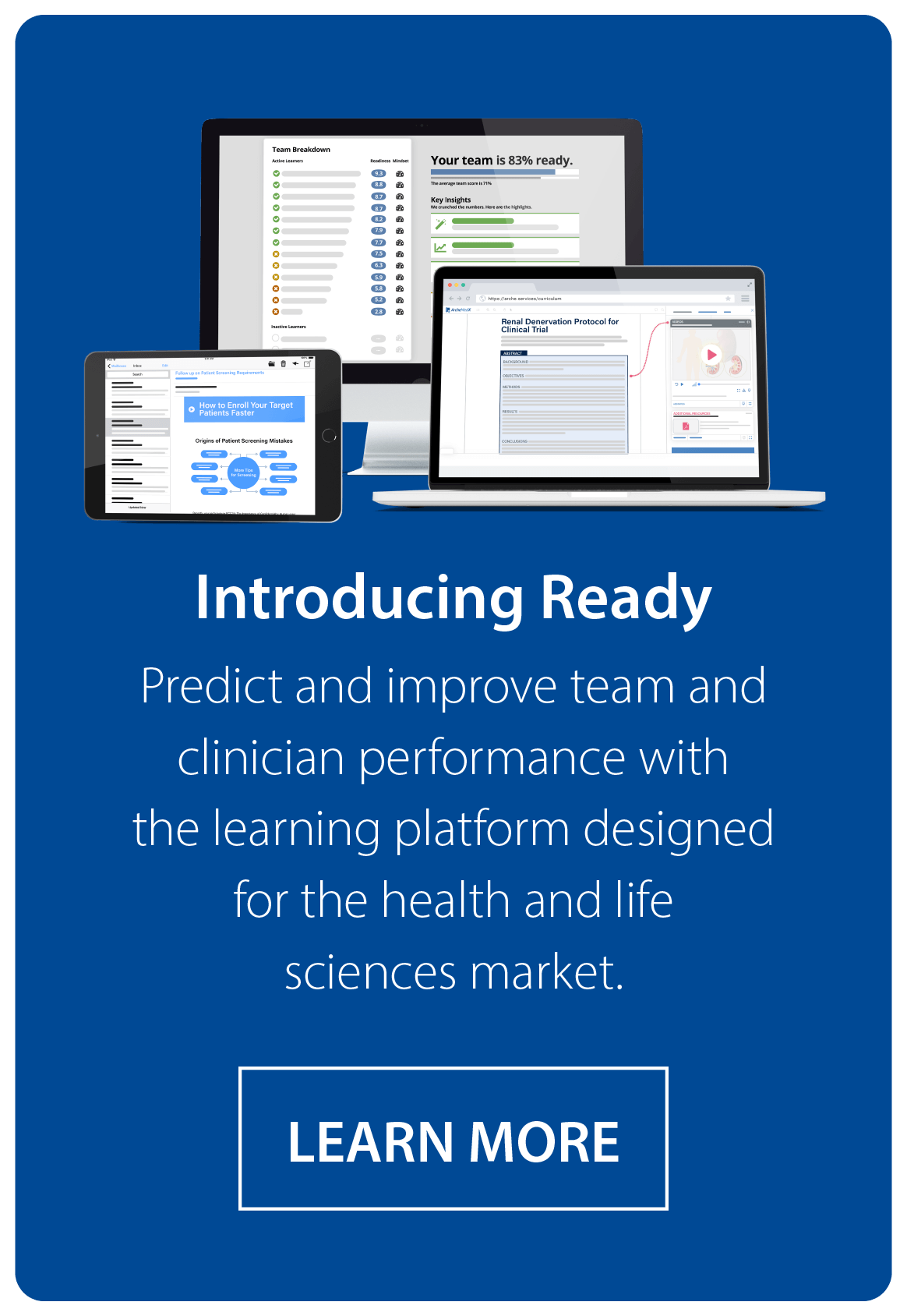When discussing how they manage clinical trial staff, industry veterans have often told us that they get the best sense of the readiness of their teams by spending some time in the same room with them, looking them in the eye. Experienced managers will say this allows them to get a gut feeling for whether a team will perform well or not, and that’s good enough for them.
Of course meetings like that are largely off the table now. Even the most experienced and intuitive managers need a new approach. They need to tap into new sources of data for assessing team readiness and performance.
The knee jerk reaction in times like these could be to bombard clinical trial staff with virtual meetings, emails, and phone calls aimed at strengthening communications — and mitigating managers’ concerns. But that approach heaps more work and stress on people who are already short on time. We need to be more thoughtful and purposeful about the way we share information and assess preparedness, or risk making a challenging situation worse.
Our Problems Are Pre-existing
The rules and requirements of communication have changed since the advent of COVID-19, but there are pre-existing problems with the way we approach educating and assessing clinical trial teams:
- We have assumed people are properly prepared simply because they read some documents, viewed a few presentations, and checked some boxes
- We have ignored the fact that one-size-fits-all training overlooks the unique strengths and weaknesses AND needs of individual members of a study or site team
- We have wasted valuable time and resources by treating all sites the same, rather than applying time and resources strategically where they are needed most
- We have overlooked the operational value of the data and insights more effective training and assessments can provide
Consider this, too: Even in normal times, running a clinical trial involves so much change and so many updates that it is a challenge to make sure that all sites are adequately prepared at all times. But now, as we struggle to keep up with the increasing pressures exerted by the COVID-19 pandemic, there are far more changes that we and our site staff must handle.
The FDA Guidance on Conduct of Clinical Trials of Medical Products During COVID-19 Public Health Emergency includes mention of many of these changes: Alternative methods for the safety assessment of patients might be implemented, protocols most likely must be amended, informed consents may need to be updated, alternative administration of product might be required, etc., etc.
In the face of so much change and with so much at stake, we need to be able to identify and address risk before protocol deviations mount and critical data is lost. Fortunately, the very challenges presented by the pandemic can serve as a catalyst to drive remote staff and sites to embrace new tools and approaches.

Our Solutions Are at Hand
Let’s revisit each of the problems listed above:
1. We have assumed people are properly prepared simply because they read some documents, viewed a few presentations, and checked some boxes.
There is no need to accept so much on faith these days. The technology exists that allows you to know how much time individuals spend in reviewing documents, how engaged they are through the process, and how much information they successfully absorb.
2. We have ignored the fact that one-size-fits-all training overlooks the unique strengths and weaknesses of individuals.
Once you are aware of the unique strengths and weaknesses of individual sites or staff members, you can focus your resources on addressing specific problems in targeted ways. And, having identified high-performing individuals, you will have the option of assigning them to the most challenging roles and responsibilities.
3. We have wasted valuable time and resources by treating all sites the same, rather than applying our time and resources strategically.
When we deploy resources without knowing exactly who needs what support or monitoring, some get too little and some get too much. In both cases, time and money are wasted.
4. We have overlooked the operational value of the data and insights more effective training and assessments can provide
This is apparent in the discussion of the three previous points, but there’s more to it, as well: The ability to more precisely understand the impact of the training you provide — the effectiveness of which is measured in detail — gives an organization the insights required to be more efficient, more agile, and more productive, no matter what demands are placed on it.
Now, and for the foreseeable future, this is power worth pursuing.





